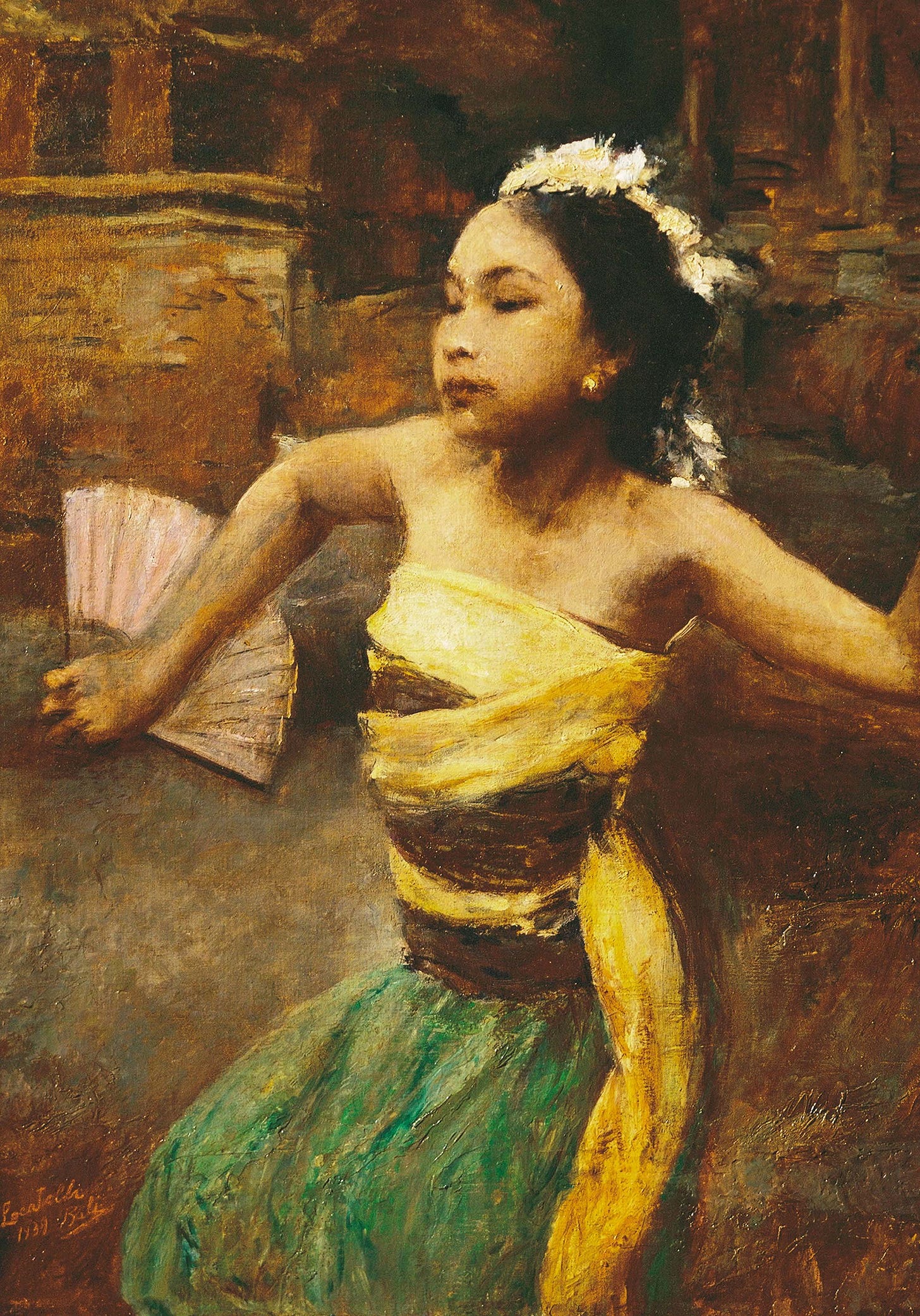"Exploring Bali" by adventurer Richard Halliburton, 1922
"For a few days I lived with a hermit fisherman, sailing forth with him in his miniature outrigger canoe to set his nets."
Richard Halliburton finished his studies at Princeton in 1921 and then began a life of adventure, traveling to Europe, South Asia, the Middle East, Asia, and the South Pacific—his adventures described in his book The Royal Road to Romance, a bestseller.
The east coast is entirely too rugged for roads, and is therefore the most aboriginal part of Bali. The beach extends unbroken for forty miles and is the only highway. Here, if anywhere, was Bali primeval—unknown, unsung, unspoiled. The coast is in the form of a semicircle, rotating about the base of the towering Peak of Bali which rises ten thousand feet from the sea and dominates every landscape on the island. With this great mountain always on my left and the indigo ocean always on my right, I spent three weeks idling along the palm-shadowed beach—the most care-free, most romantic weeks I had known since my quest began.
For a few days I lived with a hermit fisherman, sailing forth with him in his miniature outrigger canoe to set his nets. Ocean water was never so clear. One could look down into it for several fathoms and watch the roving schools of brilliant fish.
His living quarters could scarcely have been more Spartan—two poles covered with palm-leaves, braced against a boulder. For myself I matted a bed of fronds and slept on the sand. In Den Pasar I had bought paper and pencil, and when sunburn had put me out of the fishing business, I sprawled on the rocks of a nearby wooded promontory, and let the wind and the waves dictate to me a story for my American newspapers.
Becoming restless again, I moved on up the broad beachway. Fifteen miles brought me at sundown to a little cove where a family of salt collectors had built a very attractive hut of poles and matting in a dense grove of palms. They were bathing as I passed, father, mother, son, and daughter, in a freshwater pool close to the house, and being half broiled myself and parched with thirst, I followed their excellent example. They did not know whether to be frightened or amused at my spirit of fraternity, but on hearing my desperate effort to converse in Malay, decided to take it smilingly. The mother rubbed coconut oil on my blistered arms; the half-grown son climbed a tree to secure for me a “fresh drink.” Little by little their original timidity wore away, disappearing altogether when I offered the père a guilder and invited myself to dine on their frugal meal of rice and fish. The night brought forth as big and round a tropical moon as I ever saw, and a desire to cling to whatever human association I could find, if only to this simple-spirited family; so I remained all night, sleeping on my usual palm bed.
It was a novel sport assisting them next day in raking the salt deposits from the hollow logs they filled with water and left in the hot sun till the moisture evaporated. By the second evening I was quite captivated by this ingenuous household, and decided to pass the time until next boat-sailing on this idyllic spot with my hospitable friends.
I soon found out that surf-swimming was more pleasant than collecting salt, and spent hours each day in the ocean, hurrying for shelter from the sun the moment the protection of the water was lost. The two children, unlike the rest of the Balinese—who are not especially interested in aquatic sports—were marvelous swimmers and having been demoralized by my desertion of the salt business played truant themselves and answered their parents’ scolding with shouts and splashing.
Most of all we enjoyed the twilight hour. Then the sea was still and the beach deserted. The boy and girl of our ménage had never before had so strange a companion as this curious white man, a white man who loved the water as they loved it. In consequence darkness always found the three of us still enjoying the cool calm sea. If hunger drove us back to the sand, Taja, the daughter, would fetch a supper from her mother’s table. Then these brown children and I, speaking different languages, knowing different worlds, would sit on the beach under the rising moon eating our meal and laughing as merrily as if we were of one race and one mind. Communication of thought soon ceased to hamper us. A common tongue is not vital to understanding when there is congeniality of spirit.
In these romantic hours I forgot the difficulties that had beset me in the search for them. I forgot all previous existence, since in my shell of coconut milk these gentle Balinese had pressed a lotus bloom that dimmed all recollection of the past and deadened the call of the future. We obeyed the behest of Rupert Brooke; we heard “the calling of the moon, and the whispering scents that strayed about the idle warm lagoon.” We hastened “down the dark, the flowered way.” “Along the whiteness of the sand and in the water’s soft caress,” we washed our minds, “of foolishness.”
From The Royal Road to Romance by Richard Halliburton, 1925, available on Amazon*
Classic Travel Tales on Facebook
Richard Halliburton’s story “Faraway Andorra” from The Royal Road to Romance (1925)
*As an Amazon Associate we earn a bit from qualifying Amazon purchases.
Image: Legong Dancer by Romualdo Locatelli, 1939, Museum Pasifika, public domain.

